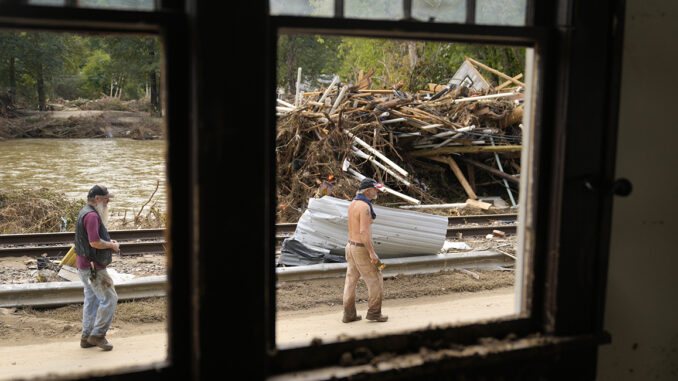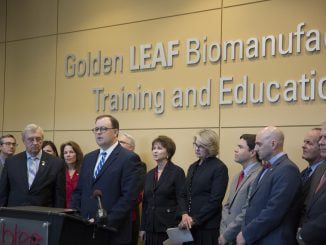
I had seen all the videos and looked at many photos, but all of these visuals did not prepare me for what I saw last week on a trip to the storm-ravaged areas of western North Carolina. If I had not seen it with my own eyes, I could never have imagined the complete and utter devastation that this area of our state and the residents have suffered.
Thank you to Joe Gibbs Racing and Team Penske for making your helicopters available to carry legislators to the area. Many areas are still only accessible by helicopters or ATVs.
I can’t begin to describe the horrors that we witnessed. There are mountain-high piles of trees, cars and splintered homes that have been cleared to make a path through some of these areas.
We landed in someone’s yard because it was the only piece of land in this particular area clear enough for a helicopter landing. There was an elderly woman sitting on the porch. I walked up and introduced myself and thanked her for allowing us to use her lawn. She shared that she had lost her son and a grandson in the storm. It broke my heart to hear her painful story.
A young man who was the assistant fire chief in this small community drove us into the ravaged areas and the “hollers” in an ATV. In this community, Craigtown, 13 lives had been lost. This young man was related to 11 of the thirteen. His entire family lived on this strip where the mountain above had opened and flood waters and mudslides came tumbling down. What had been a small stream, some might call a ditch, became a raging river that washed everything in its path away. His parents were both killed, and the home was washed away. He showed us the areas where his parents’ bodies were found.
His colleague and friend from the fire station was killed trying to rescue his aunt and uncle. He succeeded in getting the aunt to another rescuer through the window. When he went back for the uncle, the entire home washed away and both men were lost.
The survivors in the communities came out to tell us their stories, and they were heartbreaking. They praised the volunteers from all over the country who had come in to help in the recovery operations.
Without fail, there was not one single positive story about the government assistance that had been sent. FEMA was a nasty four-letter word to all of these residents. There was not one good thing said about this organization. Every person we spoke with had been denied the $750 that had been promised. One lady lost everything she had — her home, her car and all her belongings — and they finally did approve $300 for her. The folks I spoke with just wanted the government to get out of the way. They felt that there was a hindrance rather than help from the agencies sent in by the government; except for the military, I should stress — they had lots of praise for the military personnel.
These residents were furious. Many of them used the example that we are sending billions to Ukraine but can’t take care of our own residents in crisis.
The volunteers were doing an amazing job. An operations center had been set up in a Harley-Davidson building that had been flooded. Veterans were leading the emergency operations of the volunteers. Several former Green Berets and Navy SEALs had taken charge and were handling the volunteer services. It was so impressive to hear the stories of how they sent out a call to their former colleagues, and they showed up and went to work.
It will be years before this area can recover. Water and sewer systems were completely washed away in many areas. Complete towns were eliminated, and decisions must be made on how this situation will be handled. I fear that many of them will not be rebuilt.
In many cases, not only did these storm victims lose their houses but also lost the land as it was washed away, and the land is no longer buildable. Businesses that had been in operation for generations were destroyed.
We will be going back to Raleigh in a couple of weeks to continue allocating funds for the residents of the area. We are determined that funds will be monitored and will directly benefit the residents. Funds must not be routed through organizations with bureaucratic red tape that are gone before they reach their intended destination.
Continue to pray for all our Helene victims. They have a long road ahead, and it’s going to be a lot longer than I could ever imagine.
Sen. Joyce Krawiec has represented Forsyth County and the 31st District in the North Carolina Senate since 2014. She lives in Kernersville.

